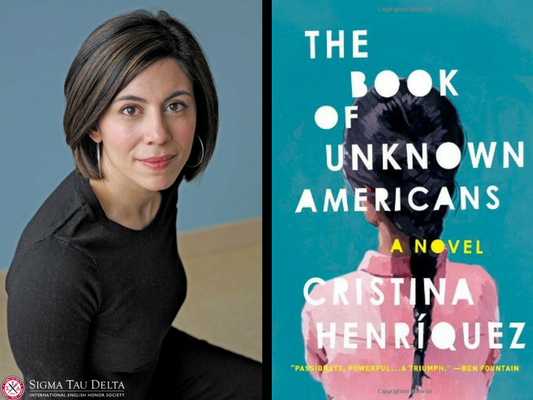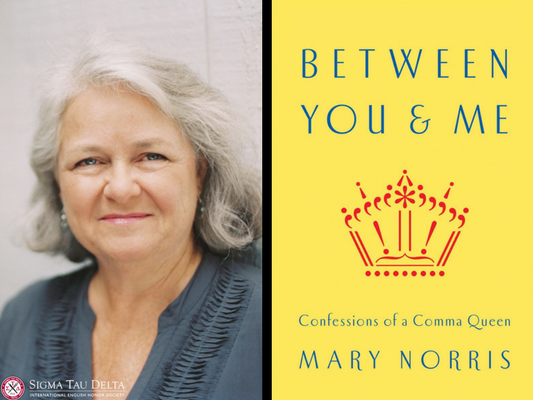We’ve all been there—stuck listening to a speaker who drones on and on, like a zombie, while we wish we could just escape before our brains are consumed by boredom. But, luckily, the Convention Committee for Sigma Tau Delta has a knack for finding speakers that engage our members on every level. And, when they do pop up again, it’s always a pleasant return to the memory of their presentations.
Late in August, as the school year loomed large, I was blowing off some steam with a long Sunday morning run and listening to NPR’s Weekend Edition. As they often do, they had an extended interview with an author—this particular day, Gin Phillips—about her new book—Fierce Kingdom, in this instance. The topic of book caught my interest as a new twist on the post-disaster literary trend, but I also remembered Gin Phillips as a featured speaker at the 2014 Convention in Savannah. Huh, cool, I thought.
Then I remembered that just about a month earlier I had heard an interview with Vietnamese-American poet Bao Phi. He also was talking about a new book, Thousand Star Hotel, and the interview showed how his poetry connects to many contemporary issues for people of color in the US, but particularly the frequent invisibility of Asian-Americans in American history and culture. The relevance of the topic caught my ear, but I also recalled enjoying a performance by Bao Phi at the 2016 Convention in Minneapolis.

Left to right: Gin Phillips, Bao Phi, Marlon James
And the topic reminded me that I had heard Marlon James just a month earlier in an interview called “A Writer on Being a Black Man in Minnesota,” aired the day after the verdict in the Philando Castile case, and just a few months after his appearance at the Louisville Convention in March.
 Hearing these writers talk about how they engage with contemporary issues reiterated for me the importance and relevance of literature, even when it seems sometimes to be a sidebar to current events. And since attending my first Sigma Tau Delta Convention in 2010, the writers I’ve been lucky enough to see at our conventions have been brought back to my attention in many small but significant ways. The fact that I encountered them, often for the the first time, because they have been convention speakers, highlights for me the value of this particular aspect of convention. Frankly, this gave me a fit of nerves when I became the Convention Chair for 2018 and realized it was, at least in part, on me to provide these experiences for our members.
Hearing these writers talk about how they engage with contemporary issues reiterated for me the importance and relevance of literature, even when it seems sometimes to be a sidebar to current events. And since attending my first Sigma Tau Delta Convention in 2010, the writers I’ve been lucky enough to see at our conventions have been brought back to my attention in many small but significant ways. The fact that I encountered them, often for the the first time, because they have been convention speakers, highlights for me the value of this particular aspect of convention. Frankly, this gave me a fit of nerves when I became the Convention Chair for 2018 and realized it was, at least in part, on me to provide these experiences for our members.
I think we’re in good hands with Cristina Henríquez and Mary Norris, though, as they both address issues that we care about as Sigma Tau Deltans. However, I struggled a bit at first to think of ideas for writers to invite to speak. Although the Convention Chair has a committee to ask for recommendations, it isn’t very leader-like to come to the table empty-handed. I had, thankfully, remembered my former student Alfredo’s recommendation of The Book of Unknown Americans, which fits well with our theme, “Seeking Freedom,” so I had a solid suggestion for a Common Reader to start with, at least.
 But, you may ask, why would I struggle to think of writers to invite? You probably have a wishlist a mile long of writers you love, writers whose latest book you eagerly await. Here’s the sticking point for me: George Eliot is my favorite writer, and she isn’t taking phone calls. Neither are Charles Dickens, Elizabeth Gaskell, or Oscar Wilde. As you can see, I spend much of my time immersed in nineteenth-century England, and we like living speakers at the convention, the popularity of zombie lit notwithstanding. I do follow contemporary literature, too, but it tends to be British as well, and it’s harder to organize appearances with international authors.
But, you may ask, why would I struggle to think of writers to invite? You probably have a wishlist a mile long of writers you love, writers whose latest book you eagerly await. Here’s the sticking point for me: George Eliot is my favorite writer, and she isn’t taking phone calls. Neither are Charles Dickens, Elizabeth Gaskell, or Oscar Wilde. As you can see, I spend much of my time immersed in nineteenth-century England, and we like living speakers at the convention, the popularity of zombie lit notwithstanding. I do follow contemporary literature, too, but it tends to be British as well, and it’s harder to organize appearances with international authors.
That gives me all the more reason to be grateful for the Sigma Tau Delta conventions I’ve attended over the years, though, because they remind me to keep in touch with contemporary American writers of all kinds, from those I’ve revered and never thought I would get to see, like Leslie Marmon Silko and Alison Bechdel, to those I have been glad I was introduced to, like Kay Ryan and Charles Baxter. In addition, the convention offers all of us who work at or attend smaller colleges and universities—many, like mine, at some distance from major airports—the chance to see speakers we never would be able to coax onto our own campuses—one reason why I so eagerly tune in to NPR is to have the chance to hear their thoughts.
So, I urge all of you to take the fullest advantage of the opportunity the convention offers you to engage with our speakers by reading their works (and writing about them—remember that you can submit a second work for presentation if it’s on the Common Reader) and attending the smaller sessions with them as well as the keynote presentations. Then you also may have those moments when you hear a familiar voice on the radio, talking about something you think matters, too.
Convention Submissions are Due Monday, October 30, 5:00 p.m. CDT
Submissions Overview
Paper Submissions
Roundtable Submissions
Submissions Evaluation Criteria
Hints for Successful Submissions
 Lexey Bartlett
Lexey Bartlett
2018 Convention Chair
High Plains Regent

Submit a comment
Your email address will not be published. Required fields are marked *
There are 0 comments